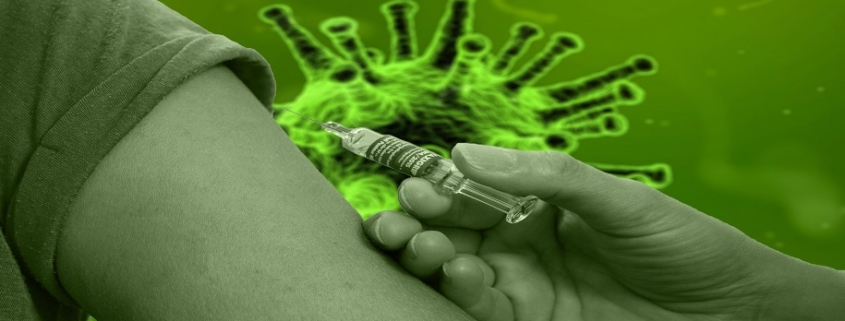Has the slow COVID-19 vaccine roll out damaged EU cohesion?
Image by Pete Linforth from Pixabay
The vaccine race associated with COVID-19 has again underlined where the global fault lines genuinely lie. On one side there are the US and UK/EU efforts and on the other Chinese and Russian vaccines. China is supplying allies such as Serbia, Turkey and some Middle Eastern nations as well as pragmatists such as Chile. Although, these vaccines appear to be inconsistent and of varying levels of efficacy according to the trial data available. The UK and US have approved vaccines more quickly than the EU and that is the main issue currently. It is one reason why European Commission missteps in relation to the (UK/Swedish) AstraZeneca vaccine and the UK’s quicker vaccination drive have generated such political blowback and even questions about EU cohesion.
An embarrassment for the EU
During four and a half years of Brexit negotiations, Brussels argued the costs of leaving were too high and the benefits of remaining evident. To now see the UK do a better job of vaccinating its population is an embarrassment. Although in this respect, the EU will counter that the UK (by negotiating on its own rather than as part of the EU bloc) has achieved the vaccine roll out by accepting inferior terms; namely by paying a higher price per dose, and by waiving the civil liability of the pharmaceutical companies in the event of adverse effects. But in the political realm, higher UK vaccination rates have a greater impact on sentiment.
Similarly, when candidate countries with a penchant for developing relationships with others, such as Serbia, can fast-track vaccination drives with preferential access to Chinese vaccines, the political optics for the EU are not exactly flattering.
Even before the UK’s respected medical journal Lancet gave its blessing to Russia’s Sputnik V vaccine, Hungary had signed a deal with Russia to procure it. Given Budapest’s tempestuous relationship with Brussels, that was really no surprise. Hungary pursued this course despite the EU adopting a joint strategy on vaccine procurement in June 2020. Yet, Germany and Austria have also voiced rather positive views on the Russian vaccine. Meanwhile Czech and Croatian talk of opting for the Russian vaccine feel more like trial balloons. In Croatia’s case in particular, the aim is to bolster the coming tourist season. This means any pick up in vaccinations has to occur promptly. Even assuming no issues with production capacities, there is no guarantee a deal can be reached between Zagreb and Moscow in time to achieve this goal.
Not good for optics, but no threat to EU cohesion
Unsurprisingly, this has generated opinions that the whole COVID-19 vaccine saga may well foretell a material deterioration of EU cohesion. After all, nation states will act in the national interest, even if fully committed to the EU. And the EU is a collection of nation states. That is why I am also not surprised a degree of resistance exists in Germany (and Switzerland) to the AstraZeneca vaccine. Both countries have strong pharmaceutical sectors and Germany’s decision (followed by other EU member state restrictions) to approve the AstraZeneca vaccine only for under 65s (and Switzerland’s ban altogether) does nothing to dispel suspicions that an element of protectionism influenced the decision. Germany may well soon change that decision.
Nonethless, that decision has led to unused vaccines even as the vaccination drive in the EU has slowed as other producers have not been able to meet initial production targets. With excess deaths this year higher and the lockdown in Germany rather strict, German politicians (including Ursula von der Leyen in her guise as head of the EU Commission) are now urging people to take the AstraZeneca vaccine.
Delay in EU vaccine approvals the root of political challenges
Had the EU approved vaccines at the same time as the US, I believe the issue would not have escalated as far. After all, at the start of a vaccination drive, a delay of five to six weeks must manifest itself in noticeably lower shares of population vaccinated. It is also easy to forget that the EU has however secured adequate doses to actually complete its vaccination drive. This is something plenty of other places cannot claim. With the single dose Johnson&Johnson vaccine approved in the US and the European Medicines Agency likely to approve its use later this month, the prospects for higher vaccination rates in the EU are looking better.
In addition, the EU’s joint strategy on vaccine procurement by ensuring that each member state would have equal access, proportionate to their population size, and above all, that each would apply the same vaccine purchase conditions arguably reinforces internal cohesion of the EU and the important principle of solidarity among member states. This is a step forward given solidarity was in short supply in the early stages of the pandemic in March 2020. Then member states tried to outbid each other for supplies of masks and medical equipment.
Vaccine development belies geopolitical realities
For all the criticism of the EU (and certain member states) – and some of it is justified – the race to produce vaccines has laid bare where modern global politics is playing out. Apart from China, Asia is largely unrepresented, as are South America and Africa. It is the US, EU, Russia and China which have developed COVID-19 vaccines and who will refine them.
Both Russia, by leveraging its diplomatic missions to offer production agreements for its Sputnik V vaccine and China, which is leveraging its allies outside the EU, are unsurprisingly using the fact they have their own vaccines to advance their foreign policy goals.
While individual member states thinking about or even procuring Russian vaccines and European Commission’s missteps in respect of the AstraZeneca vaccine have opened the EU up to criticism, if anything, the vaccine procurement process has been an advertisement for EU cohesion. Acting on their own, smaller member states would certainly not have been able to negotiate better conditions than the EU. And the EU’s pharmaceutical and research capacities have played in developing vaccines against COVID-19 and will continue to do so.
As far as EU cohesion is concerned, issues which have generated far more political tension, for far longer in the past and will do so again in the future, such as disagreements over economic policy settings at the EU level are far likelier sources of damage than the COVID-19 vaccine tribulations of 2020/2021.

